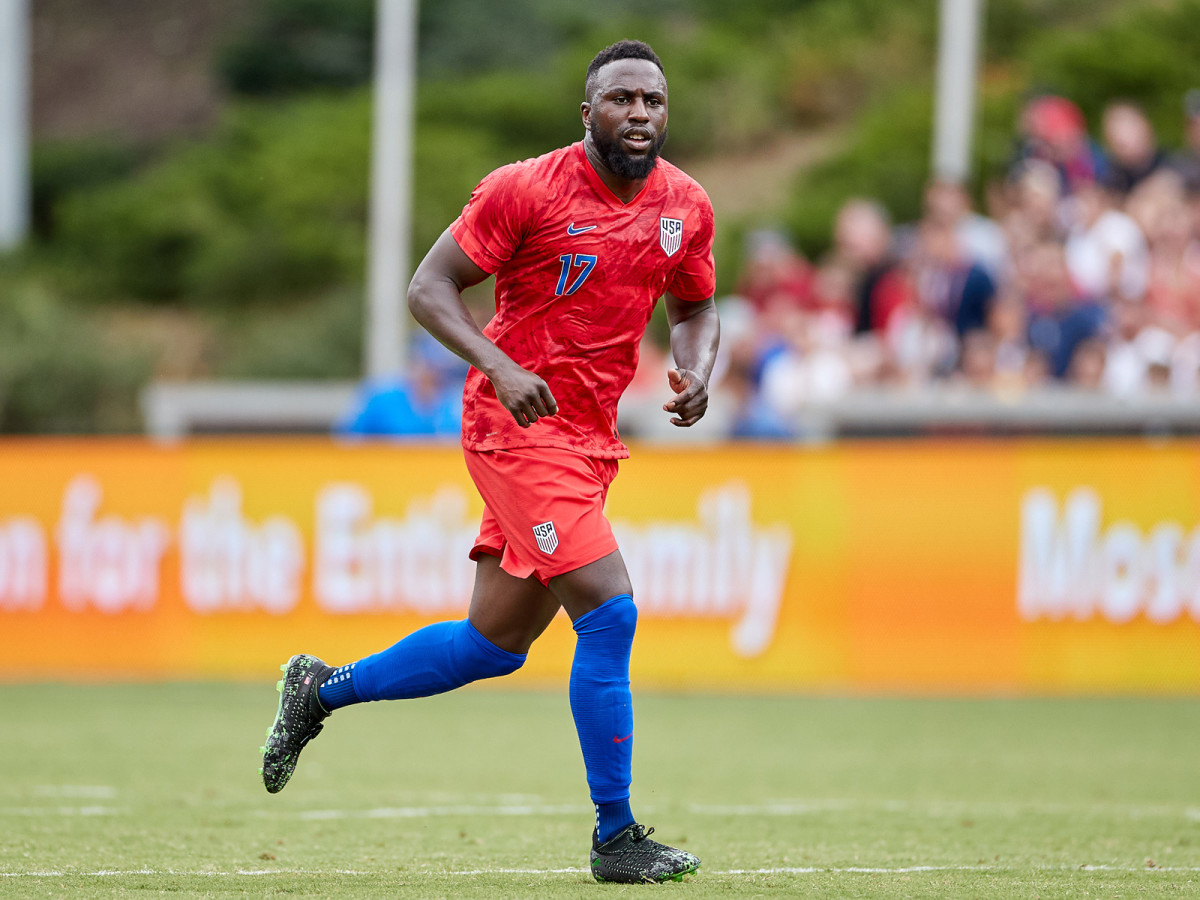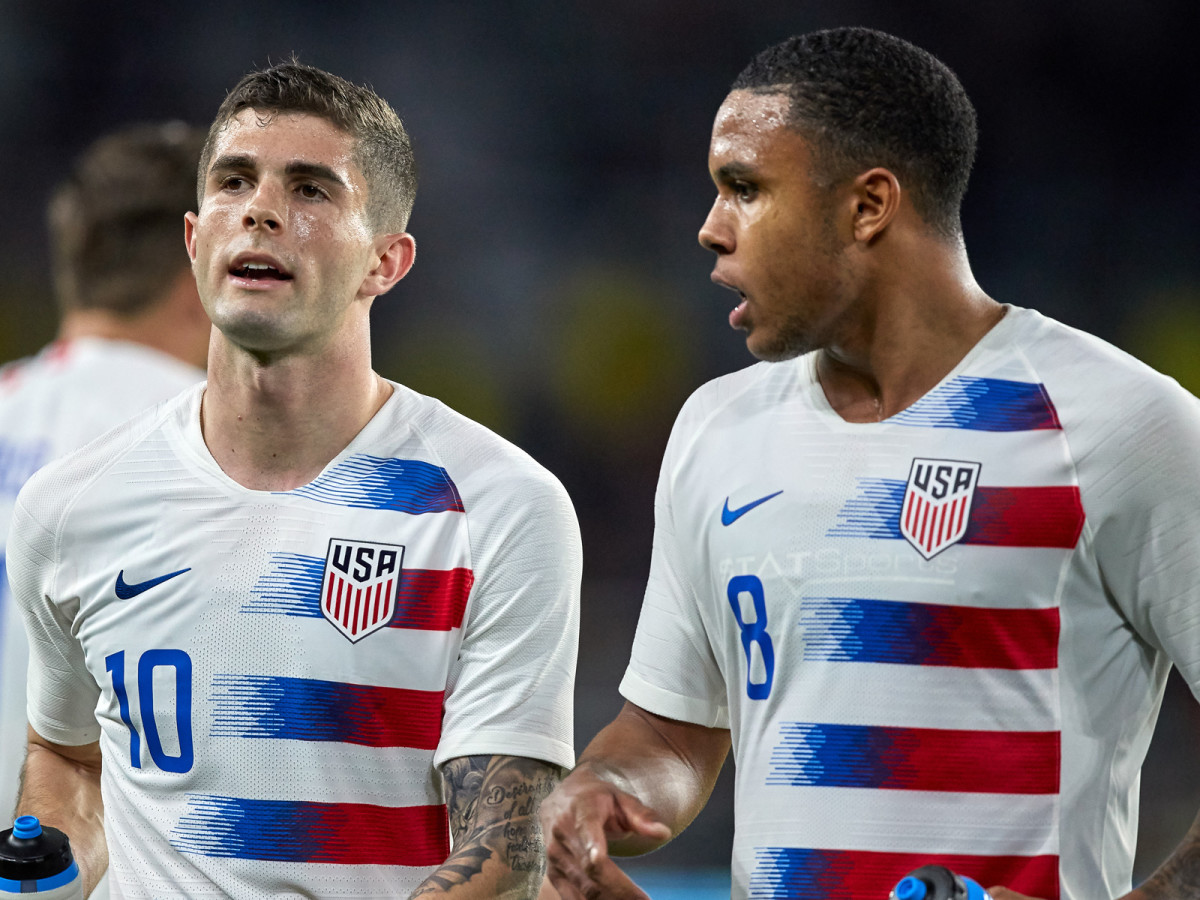What Gold Cup Means to Berhalter, USMNT in Return to Competitive Play

Somehow, after all this time, at the end of this historic lull, it almost seems as if the games that finally matter are happening too soon.
It’s been 20 months since the U.S. national team was knocked out of qualifying for the 2018 World Cup—20 months since it played a game that counted. That’s the program’s longest fallow stretch in more than three decades. Yet despite that break, and also because of it, the USA remains in reboot mode. That’s partly by design and partly by necessity, but it’s also the result of long-term player development and short-term injury issues that are beyond any given coach’s control. Seeds have yet to sprout. Nevertheless, whether coach Gregg Berhalter and his team are ready or not, the Concacaf Gold Cup is here.
It begins with what should be the USA’s easiest game: Tuesday night’s tilt in St. Paul, Minn., vs. Gold Cup debutant Guyana, currently ranked 177th in the world. The group stage concludes with progressively more challenging matches against Trinidad & Tobago (Saturday) and Panama (June 26). Like the USA, the Gold Cup is entering a new era. Expansion to 16 teams (from 12) makes room for the likes of Guyana, while fixtures in Costa Rica and Jamaica spread some of the wealth.
At the same time, the tournament’s importance suffered a big blow when FIFA eliminated the Confederations Cup. Absent an invitation to play European and South American powers in official competition, a Gold Cup crown now seems to represent an end rather than a means. And how much is that biennial title worth—especially to the USA (six Gold Cups) and Mexico (seven, and 10 regional championships overall), who’ve combined to win 13 of the 14 editions?
To U.S. Soccer and the Mexican federation, probably not a whole lot. The withdrawal of several veterans from Tata Martino’s Mexican squad is an indication that winning a Gold Cup (or a second or third) isn’t the highest priority for everybody. U.S. Soccer took its time hiring Berhalter—as a new president then a GM took office—knowing that every month that passed reduced the opportunity to prepare. Berhalter’s mandate isn’t to win this Gold Cup just six months and six friendlies into his overhaul of the program. It can’t be. And for the USSF, that’s O.K. At this point, a Gold Cup trophy is nice but not required. There are no parades or rallies for the victors, anyway. When was the last time you saw a “Gold Cup Champions” T-shirt?
To the individuals in uniform however, this Gold Cup could be deeply significant. For those from Costa Rica, Honduras or Jamaica, perhaps there’s a chance to finally end North American dominance. Canada, which opened with Saturday’s 4-0 win over Martinique, looks capable of a deep run for the first time since 2007.
And for the Americans, it means games that matter and a chance to begin laying a lasting foundation for the program Berhalter has been hired to build. For the first time in more than half a decade, the USA has a manager committed to a specific tactical approach and style of play. That takes time to build, however, as players learn its nuances and as a capable and dependable core emerges. In addition, Berhalter is focused on team culture. That also can’t gel in six months, given the intermittent and inconsistent nature of national team camps.

The talent pool isn’t as deep as it has been at other points in recent U.S. soccer history, leaving Berhalter to trust in a small handful of vets like Michael Bradley, Omar Gonzalez and Jozy Altidore, along with a bunch of younger players still learning the international ropes. That’s another factor that may work against the Americans this month. But it's the foundation that’s important, and therein lies the real value of this Gold Cup. Asked whether his squad might look different if his life depended on winning a seventh Concacaf title, Berhalter said, “We’re trying to sway more toward 2022. That’s what we’re trying to do. I’m sure there’s going to be some players [on the Gold Cup team] that fall in the [win-now] bucket, but we’re conscious of 2022.”
And so 13 of Berhalter’s 23 players are in line to make their Gold Cup debut, and 12 have 10 caps or fewer. The composition of the back line was unsettled even before injuries to John Brooks, DeAndre Yedlin and Tyler Adams. The potential first-choice midfield trio of Bradley, Christian Pulisic and Weston McKennie hasn’t started together. And an important wrinkle in Berhalter’s 4-3-3 system—when the outside back shades into midfield when the USA takes possession—was undermined when Adams had to pull out.
Ideally, teams hit their peak come tournament time. The USA is nowhere near it. But a routine Gold Cup may not require it. The Americans still should make a run, and whether it ends with a trophy or before the final, there’s still a lot of work to do this fall and beyond.
“It’s still a tournament for supremacy in our region, which is great,” Berhalter told SI.com when asked about the Gold Cup’s importance. But the manager said evaluation of his team will be more about how it ends the tournament—not when.
“We want to win the title. There’s no question about it. But you don’t know. It could go down where you play an amazing game in the semifinal [and lose]. You just don’t know how it all turns out,” he said. “[Winning] would be a great accomplishment for this group. I think it’s a great challenge for this group to navigate through this tournament. There’s a number of different venues, a lot of travel. It’s going to be a good challenge for us, and for this group in particular it’s how do we deal with all that stuff and stay calm and stay focused.”

He’ll be looking for signs that his system is taking root. Things didn’t look too good during the recent losses to Jamaica and Venezuela, but those were early-camp friendlies contested by lineups that shouldn’t resemble Berhalter’s Gold Cup preference.
“It’s about compounding games,” he said of the time it takes for his system to become second nature. “You layer them on top of each other and all of a sudden, four years later, you have something the guys understand inside and out.”
He continued, “There should be some expectations that you should see structure on both sides of the ball [at the Gold Cup]. You should see ideas of how we’re trying to move the ball and how we’re trying to disorganize the opponent. I would hope elements would be there. That’s what we’re looking for.”
Doing well at the Gold Cup will build confidence, begin to establish some continuity for Berhalter’s core and help re-establish a winning culture in a program that lost its way on several levels. And so even without the Confederations Cup carrot, the Concacaf championship can once again be both an end and the means for this particular coach and group of American players.
“We want to progress,” McKennie told reporters in Minnesota. “Of course that also means winning games, but we want to develop our style. And our goal is to make people see U.S. soccer as something different than what they see now, probably. And [to] stick together. That’s one of the things that builds team chemistry. We’re high believers of that.”
Added Berhalter, in comments to SI.com: “The way we play, we need to build trust. You don’t just play the way we want them to play without their being a high level of trust. To get trust, we want them to be comfortable. We still have expectations. We still want them to be at their peak [when joining up with the national team]. But when they come back, we want them to really enjoy coming back. I know first-hand the pleasure of representing your country, and we want to create a similar environment where they know, ‘O.K., this is professional but we’re going to enjoy this. This is going to be fun.’”
